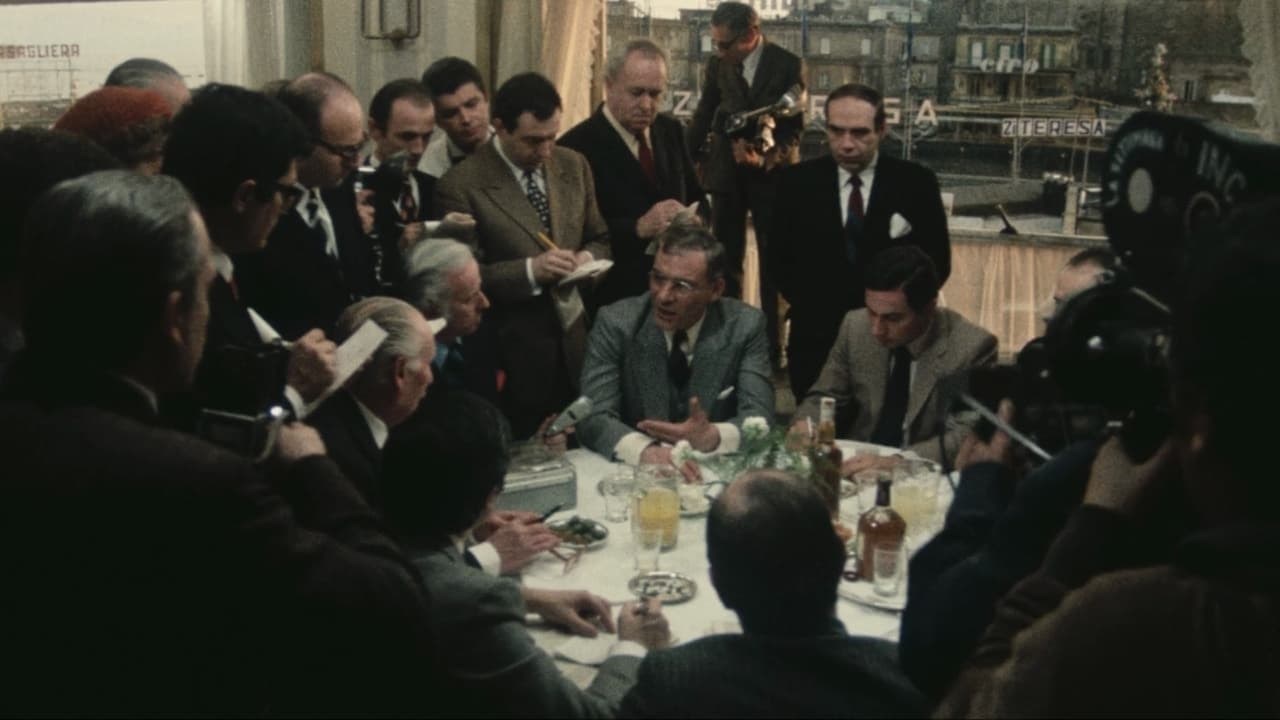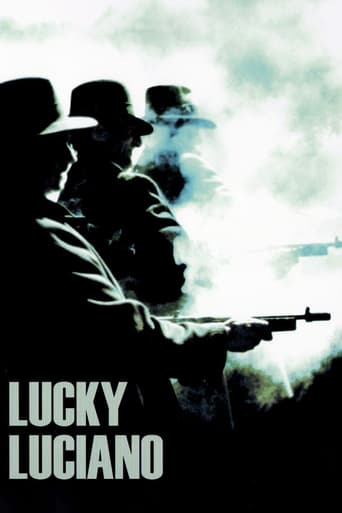

If you want to watch Gian Maria, the greatest actor of all time, at his best, watch him in "Investigation of a Citizen Above Suspicion", "Le Cercle Rouge", "For a Few Dollars More" or "I Am Afraid", he worked much much better with Petri, Melville, Leone and Damiani. This one is very boring and Volontè doesn't appear much. And when he appears, he has the same face that does not say too much. This role did not quite fit him. Rosi's films, most of them, are a special genre, very close to the documentary, very hard to follow, you got to have a patience of steel...
... View MoreI would say that i find crime films to be something of a guilty pleasure, from Paul Muni in Scareface (1932) to Marlon Brando in The Godfather (1972) and all the sub genders in between i am normally a fan and gangster films have held audiences interest for as long as the movies have talked. So it was a surprise to me that i found this film such a ordeal to get through, on my viewing copy the language used is Italian and English in equal measure where appropriate, this adds authenticity but since i do not understand Italian, much of this speech dominated film simply passed me bye and there were no sub titles to help out.I also found it's time shifting narrative very confusing as the film did not give us many dates to hang on to. This is i suppose a thinking man's gangster film, i wish i had enjoyed it more for the acting from a unknown cast seemed first rate.A pity but just 5 from 10 from me.
... View MoreReading some of the other reviews of Rossi's Lucky Luciano it is worth remembering that before it's release in 1974 the Italian film censors got their hands on Rossi's final cut and butchered it against his wishes, his protestations falling on deaf ears. It would appear this is the only cut that has survived official interference and, why I suspect it is so disjointed in its chronology. It is with this unwarranted and suspicious interference from the Italian censor that we should view this movie and which makes the content so much more revealing about the Italian state and how it's hidden hand works on different levels.This is a very powerful and sophisticated film so both character and historical background knowledge is essential before viewing to make this a much more rewarding experience. Rossi is a master of political expose in cinema and deserves credit to agree releasing it in this pared down version - which must have stuck in his throat to do so at 100/110 minutes according to which distributors copy you buy -
... View MoreThis is the real story behind Lucky Luciano , born Salvatore Lucania November 24, 1897 – January 26, 1962, the high priest of crime , the detailed account the world's most powerful mobster who built an empire on a sea of blood . This international co-production by Italy/US/France deals with the deported crime boss who is sent back to Italy . This picture is plenty of mayhem , strong stuff , drama and amount of gangland violence . Biographic movie about the notorious kingpin Lucky Luciano , though depiction is about the final years , including various flashbacks . Lucky is one of the bosses of the Mafia and leader of Cosa Nostra or Mafia, and soon became a chief in the Reina Family during the height of the Castellammarese War. Then takes place a Mafian War between Salvatore Maranzano, who eventually defeated the faction headed by rival Joseph Masseria . After Masseria's murder , this position was short-lived, as Maranzano himself was murdered in 1931 . Then , the family is headed by Charles "Lucky" Luciano , eventually known as the Genovese Family. He orders the slaughter of 40 other responsible , a famous massacre nicknamed Sicilian Vespers , therefore becoming the only boss. But a few years later he is put into jail. This landmark mobster movie is strong stuff , being dominated by the tenacious acting of Gian Maria Volonte as the gangster of the title who follows his way venomously since his US expulsion through criminal career in Naples and Sicily . As trivia , previous Federal Narcotics Agent Charles Siragusa , Lucky's real-life nemesis , plays himself . There appears several known gangsters as Vito Genovese well played by Charles Cioffi and the informer named Giannini rightly performed by Rod Steiger . Director Francesco Rosi's body-strewn look at the feud between gangsters , Commissioners and Judges, , but especially concerns about Lucky Luciano given a good interpretation by Volonte . This is a violence-ridden story full of action, drama, thriller , suspense but being overlong . The notorious gangster Lucky Luciano is splendidly played by Gian Maria Volonte who makes a good character study of one of the most colorful mobsters of the history . Glimmer and evocative cinematography by Pasqualino De Santis , though being necessary a correct remastering . Adequate and atmospheric musical score by Piro Piccioni . The motion picture is well based on true events : Lucky Luciano was an Italian-born, naturalized American mobster born in Sicily. Luciano is considered the father of modern organized crime in the United States for splitting New York City into five different Mafia crime families and the establishment of the first Commission. He was the first official boss of the modern Genovese crime family. He was, along with his associate Meyer Lansky, instrumental in the development of the National Crime Syndicate in the United States. On January 3, 1946, as a presumed reward for his alleged wartime cooperation, now Governor Thomas E. Dewey reluctantly commuted Luciano's pandering sentence on condition that he does not resist deportation to Italy. As two federal immigration agents transported Luciano from Sing Sing prison to Ellis Island in New York Harbor for deportation proceedings . In Italy and Sicily begins becoming one of the chief of the Mafia. The US Army seems to refrain from interfering his business . But in 1946, Luciano secretly moved to Havana, Luciano's objective in going to Cuba was to be closer to the United States so that he could resume control over American Cosa Nostra operations and eventually return to the United States. Meyer Lansky was already established as a major investor in Cuban gambling and hotel projects . In October 1963, Valachi had testified before Subcommittee on Investigations of the U.S. Senate Committee on Government Operations that the Mafia did exist . Although Valachi's disclosures never led directly to the prosecution of many Mafia leaders, he was able to provide many details of its history, operations and rituals, as well as naming many members and the major crime families , Luciano among them . With the death of Maranzano, Luciano became the dominant organized crime boss in the United States. He had reached the pinnacle of America's underworld, directing criminal rules, policies and activities along with the other family bosses. Luciano also had his own crime family, which controlled lucrative criminal rackets in New York City such as illegal gambling, bookmaking, loan-sharking, drug trafficking and extortion. Luciano became very influential in labor and union activities and controlled the Manhattan Waterfront, garbage hauling, construction, Garment Center businesses and trucking.
... View More